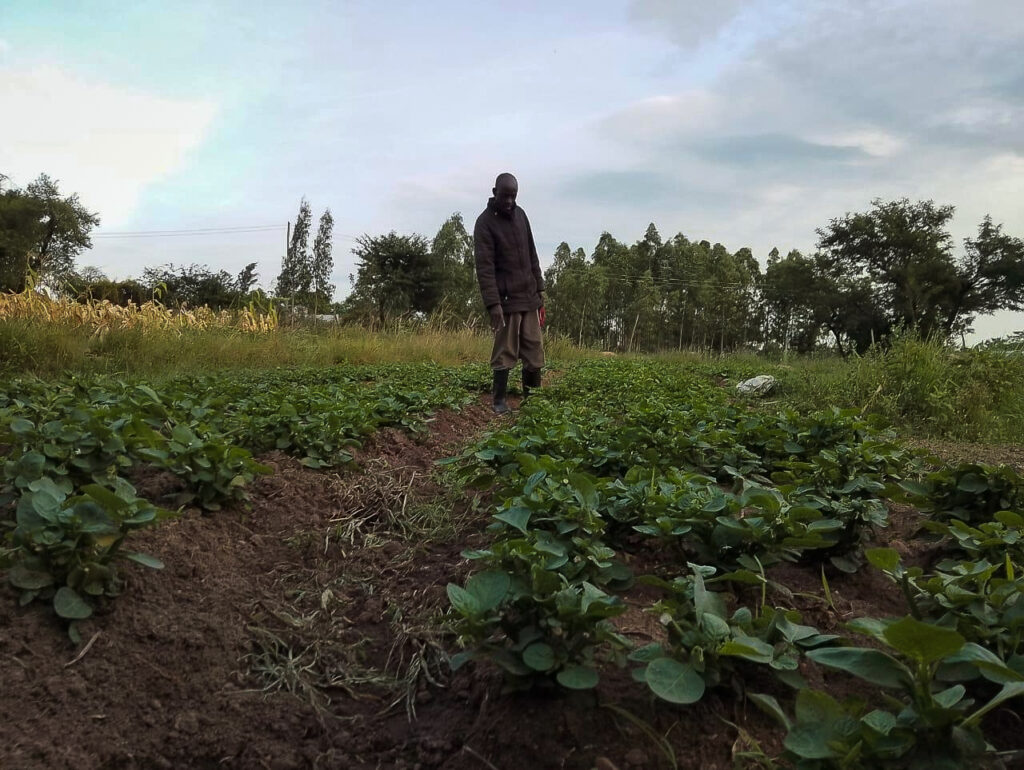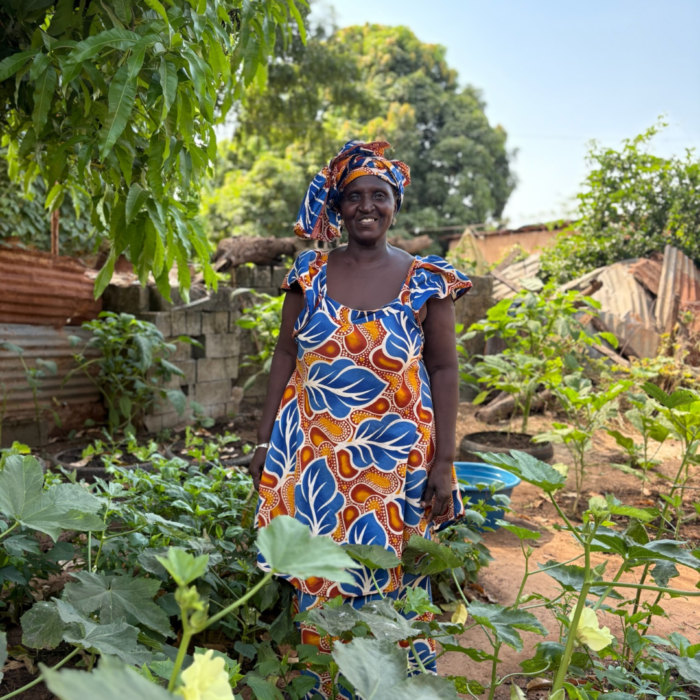A Turning Point
Facing mounting financial challenges after Moses lost his job, the couple had to rely solely on what they could grow to feed their family. Before joining DIG’s program, their small plot produced barely enough in market sales to cover their most pressing needs, let alone pay school fees for their five children. The weight of financial and nutritional uncertainty loomed large and they knew they were one small climate event away from dangerous setbacks.
Everything changed in 2024 when Dorcas and Moses joined DIG’s Farmer Field School at the the Kawanda Community Demonstration Farm. As they gained applicable skills throughout the program, their small garden plot began to flourish. Noticing a steady market demand for a nutrient-dense local kale, the couple chose to invest in their garden for financial gain and turned their garden into an income generating farm.
Applying Agroecology: Working With Nature
Under DIG’s guidance, the couple utilized a variety of agroecological practices such as homemade organic pesticides, and compost made from tithonia diversifolia and livestock manure. The techniques all aim to work with nature rather than against it.
Their methods proved successful and their kales flourished. Their small farm began attracting local businesspeople who came to purchase their kale in bulk. With a steady income, the couple has been able to pay school fees for their children, a relief Moses describes as “life-changing.”
Diversification and Climate Resilience
Our studies have shown that farmers trained by DIG more than triple the variety of vegetables they grow and consume, increasing from 3 types to over 10 types of vegetables a year after they complete the program. Encouraged by their success with kale, Moses and Dorcas have begun to diversify their farm, growing bulb onions, spinach, tomatoes, pawpaw, sugarcane, eggplant, bananas, and black nightshade. They have even begun to invest in livestock, something Moses once felt was not possible.
To ensure water is available for their crops, DIG connected the family to an external partner who installed a piping system to help irrigate their garden. This has helped to safeguard the farm’s water supply during periods of drought.
The Impact of Resilience
Paying school fees has always been a challenge,” Moses shared. “But now, with the income from kales and other crops, I can provide for my children’s education. I want all my children to grow up educated and successful.”
This determination has inspired the couple’s community and highlights the power agroecology has to build resilience, economic growth and local food security in the face of climate change.
How You Can Help
Support DIG’s work with smallholder farmers.
Learn, share, take action.
Every effort contributes to a future where farming works, with nature, for communities, to feed the world.


